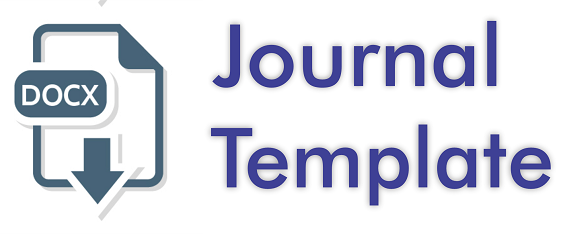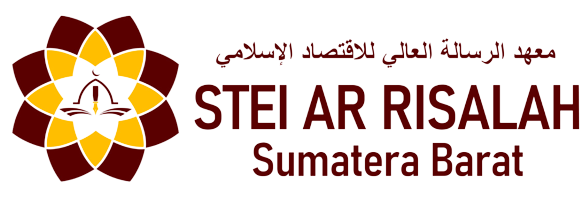Determinants Of Waqf Interest Through Digital Media In Banda Aceh City
DOI:
https://doi.org/10.59107/ri.v4i1.75Keywords:
Cash Waqf, Digital Media, Income, Trust, ReligiosityAbstract
This research was conducted to analyze the effect of income, trust, religiosity and social influence on interest in cash waqf through digital media in the Banda Aceh city. The sample used in this study amounted to 100 respondents obtained from the calculation of the slovin formula. This type of research is quantitative research with primary data as a source of data in the research. The results of the study show that partially income, trust, religiosity, and social influence influence interest in waqf in the Banda Aceh city. Simultaneously, income, trust, religiosity and social influence affect interest in waqf through digital media in the Banda Aceh city. To increase interest in digital waqf, people can increase income, trust, religiosity, and social influence. Therefore, the public can take advantage of digital media as a means of cash waqf.
Downloads
References
Apriliani, D., Senjiati, I. H., & Srisusilawati, P. (2021). Faktor-faktor yang Mempengaruhi Minat Masyarakat Kota Bandung Berwakaf Uang Melalui E- Commerce. Prosiding Hukum Ekonomi Syariah, 494–497.
Aznin, R. (2019). Pengaruh Tingkat Pendidikan, Tingkat Pendapatan Dan Media Informasi Terhadap Minat Masyarakat Berwakaf Uang Di Kota Banda Aceh. In Https://Repository.Ar-Raniry.Ac.Id/ (Vol. 3).
Badan Pusat Statistik. Statistik Daerah Kota Banda Aceh Tahun 2022.
Bonang. D, Ismail. S, Sukmana, R. (2024). Empowering The Future Of Cash Waqf Through Digitalisation: An Insight Into The Philanthropic Intention Of The Indonesian Muslim Community, 16(1): 94-117. https://journal.inceif.edu.my/index.php/ijif/article/view/586.
Fanani, A, Kuncoro. W.A, Husni. M. H, Wijayanti. A. E. (2021). The Contribution Of Waqf On Poverty Alleviation Through Digital Platforms: A Case Of Indonesia. 6(2): 246-261. https://shirkah.or.id/new-ojs/index.php/home/article/view/386
Hinati, H. (2019). Pengaruh Sosial, Kemudahan, Kepercayaan Dan Keamanan Terhadap Minat Menggunakan Uang Elektronik Syariah Di Masyarakat Dki Jakarta.
Lim, Y., Osman, A., Salahuddin, S., Romle, A., dan Abdullah, S. (2016). Factors Influencing Online Shopping Behavior: The Mediating Role of Purchase Intention. Procedia Economics and Finance 35 401 – 410
Maulidiah, S. (2021). Pengaruh Persepsi Kompatibilitas, Persepsi Manfaat, Persepsi Biaya, Religiuisitas dan Promosi terhadap Minat Konsumen dalam Menggunakan Dompet Digital. Universitas Islam Negeri Syarif Hidayatullah Jakarta, 212.
Nashori, F dan Mucharam, F. (2022). Mengembangkan Kreativitas dalam Perspektif Psikologi Islam. Jogyakarta: Menara Kudus.
Paksi, M., Gerindra., Manzilati, A., & Ekawaty, M. (2020). Wakaf Bergerak Teori dan Praktik di Asia. IKAPI. Malang.
Permana, Y., & Rukmanda, M. R. (2021). Wakaf: Tinjauan Fikih, Dasar Hukum, dan Implementasinya di Indonesia. Al-Kharaj : Jurnal Ekonomi, Keuangan & Bisnis Syariah, 3(2).
Putri, D. W., & Utama, L. (2021). Pengaruh Persepsi Kualitas, Pengaruh Sosial, Dan Kebutuhan Akan Keunikan Terhadap Minat Pembelian Konsumen Luxury Brand Pada Generasi Y. Jurnal Manajerial Dan Kewirausahaan, 3(1), 176
Rahmawati., Thamrin, H., Guntoro, S., Dan Kurnialis, S. (2021). Transformasi Digital Wakaf
Bwi Dalam Menghimpun Wakaf Di Era Digitalisasi. Jurnal Tabarru’ : Islamic Banking And Finance Volume 4 Nomor 2
Rao, K., Rao, B., dan Acharyulu, G. (2021). Examining ePWOM-purchase intention link in Facebook brand fan pages: Trust beliefs, value co-creation and brand image as mediators. HBM Management Review, 33, 309-321
Rifki, M. (2021). Digitalisasi Wakaf, Upaya BWI untuk mencapai potensi wakaf di masa
Pandemi. Www.BWI.Com https://m.kumparan.com/rifkimegian/digitalisasi-wakaf-upaya-untuk-mencapai-potensi-wakaf-di-masa- pandemi1wzfC9Vq4Wj
Riski, M. (2021). Analisis Penentu Minat Masyarakat Dalam Melakukan Wakaf Tunai Di Kota Banda Aceh. Skripsi.
Robbins, P. Stephen & Judge, Timothy A. (2017). Organizational Behaviour, Edisi 13, Jilid 1, Salemba Empat, Jakarta.
Sekaran, U dan Bougie, R. (2016). Research Methods For Business: A Skill Building Approach, 7th Edition. New Jersey: Wiley
Sugiyono (2017) Metode Penelitian Bisnis. Bandung: Alfabeta.
Downloads
Published
Issue
Section
License
Copyright (c) 2025 RISALAH IQTISADIYAH: Journal of Sharia Economics

This work is licensed under a Creative Commons Attribution 4.0 International License.
License
The non-commercial use of the article will be governed by the Creative Commons Attribution license as currently displayed on http://creativecommons.org/licenses/by/4.0/. This licence allows the user to distribute, remix, tweak, and build upon the licensed work, including for commercial purposes, as long as the original author is credited.
Author’s Warranties
The author warrants that the article is original, written by stated author/s, has not been published before, contains no unlawful statements, does not infringe the rights of others, is subject to copyright that is vested exclusively in the author and free of any third party rights, and that any necessary written permissions to quote from other sources have been obtained by the author/s.
User Rights
Under the Creative Commons Attribution license, the author(s) and users are free to share (copy, distribute and transmit the contribution).
Rights of Authors
Authors retain the following rights:
- copyright, and other proprietary rights relating to the article, such as patent rights,
- the right to use the substance of the article in future own works, including lectures and books,
- the right to reproduce the article for own purposes, provided the copies are not offered for sale,
- the right to self-archive the article.
Co-Authorship
If the article was prepared jointly with other authors, the signatory of this form warrants that he/she has been authorized by all co-authors to sign this agreement on their behalf, and agrees to inform his/her co-authors of the terms of this agreement.
Termination
This agreement can be terminated by the author or RISALAH IQTISADIYAH: JOURNAL OF SHARIA ECONOMICS upon two months’ notice where the other party has materially breached this agreement and failed to remedy such breach within a month of being given the terminating party’s notice requesting such breach to be remedied. No breach or violation of this agreement will cause this agreement or any license granted in it to terminate automatically or affect the definition of RISALAH IQTISADIYAH: JOURNAL OF SHARIA ECONOMICS.
Royalties
This agreement entitles the author to no royalties or other fees. To such extent as legally permissible, the author waives his or her right to collect royalties relative to the article in respect of any use of the article by RISALAH IQTISADIYAH: JOURNAL OF SHARIA ECONOMICS or its sublicensee.
Miscellaneous
RISALAH IQTISADIYAH: JOURNAL OF SHARIA ECONOMICS will publish the article (or have it published) in the Journal, if the article’s editorial process is successfully completed and RISALAH IQTISADIYAH: JOURNAL OF SHARIA ECONOMICS or its sublicensee has become obligated to have the article published. RISALAH IQTISADIYAH: JOURNAL OF SHARIA ECONOMICS may conform the article to a style of punctuation, spelling, capitalization and usage that it deems appropriate. The author acknowledges that the article may be published so that it will be publicly accessible and such access will be free of charge for the readers. RISALAH IQTISADIYAH: JOURNAL OF SHARIA ECONOMICS will be allowed to sublicense the rights that are licensed to it under this agreement.


.png)
.png)






